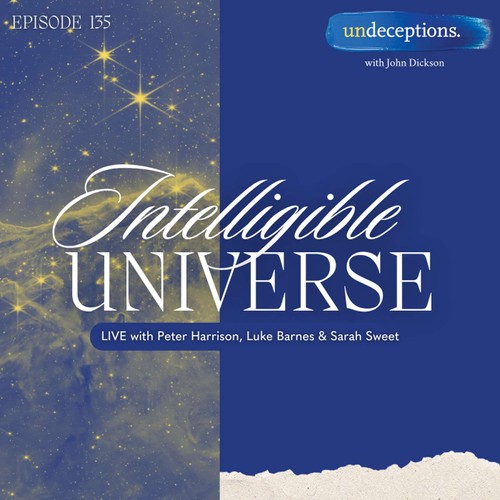
 Undeceptions with John Dickson
Undeceptions with John Dickson 135. Intelligible Universe
59 snips
Aug 25, 2024 Peter Harrison, a Professor Emeritus at the University of Queensland, discusses the historical ties between Christianity and science. Astrophysicist Sarah Sweet and cosmologist Luke Barnes delve into the concept of a finely tuned universe, exploring the implications for both faith and science. They debate whether there's room for the supernatural within scientific inquiry and examine recent revelations about galaxies, shaped by technology like the James Webb Telescope. Together, they challenge conventional views on the interplay of science and religion.
AI Snips
Chapters
Transcript
Episode notes
Science and Religion Chairs
- Science and religion chairs explore their compatibility and historical interplay.
- Historians see it as a complex relationship, not simply conflict or harmony.
Christianity's Influence on Early Science
- Christianity significantly influenced early scientific thought.
- Scientists like Kepler and Boyle saw their work as a religious vocation, motivated by Christian beliefs.
Augustine's Influence on Scientific Method
- Augustine's view of fallen human nature encouraged a more rigorous approach to studying nature.
- This led to a shift from assuming inherent rationality to embracing repeated observations and experimentation.
